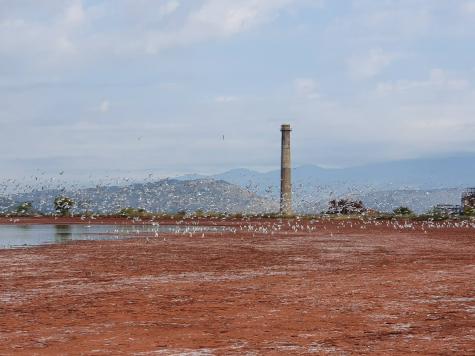
The third EPR of Montenegro found that about 99 per cent (still the case at present) of emissions into air from the industrial sector originated from Podgorica aluminium plant. In addition to air pollution, aluminium manufacturing produces vast amounts of bauxite residue, otherwise known as red mud, which has a damaging effect on the local environment. Large open ponds filled with red mud sit beside Podgorica aluminium plant. These pools and other disposal sites are associated with the contamination of groundwater and other damaging environmental, social and economic effects for the surrounding area.
A study conducted with UNECE support involved significant research into environmental hazards and the potential for the economic valorization of red mud. Concerning environmental impact, the need for urgent action is clear given the instability of red mud pools located in areas of seismic activity with frequent earthquakes and, in certain weather conditions, the wind picks up toxic red dust and blows it to nearby villages.
The study recommends that the Government consider developing innovative and sustainable technologies to produce rare metals from the red mud and process the remaining residues in compliance with the strictest environmental standards. Furthermore, improving energy efficiency, use of alternative energy sources and valorization of all types of industrial waste, are national priorities for developing a circular economy in accordance with the country’s Smart Specialization Strategy (2019–2024)

